Now these are some CUTS we can get behind! We are robbed when it comes to prescription drug prices…how about more time and energy on these kinds of cuts, which would benefit everyone, including the deficit, instead of the cuts that HARM the sick on Medicaid and Medicare?
Medicaid Pays Less Than Medicare for Many Prescription Drugs, U.S. Report Finds
By ROBERT PEAR
WASHINGTON — Medicaid gets much deeper discounts on many prescription drugs than Medicare, in part because Medicaid discounts are set by law whereas Medicare prices are negotiated by private insurers and drug companies, federal investigators said Monday in a new report.
The report, from the inspector general of the Department of Health and Human Services, could be used by lawmakers trying to cut drug prices as Congress looks for ways to rein in the cost of Medicare under the new deficit-reduction law.
Under existing law, the Congressional Budget Office estimates that the cost of Medicare’s outpatient drug benefit will increase an average of nearly 10 percent a year, to $175 billion in 2021, from $68 billion this year.
Medicaid and Medicare receive discounts in the form of rebates, which are paid by drug manufacturers when their products are dispensed to people enrolled in the programs.
The inspector general, Daniel R. Levinson, found that rebates reduced spending on 100 widely used brand name drugs by 19 percent in Medicare and by 45 percent in Medicaid. After taking account of the rebates, Mr. Levinson said, Medicaid paid significantly less than Medicare for the same drugs.
Federal law specifies how the discount, or rebate, is calculated under Medicaid, the program for low-income people. The minimum rebate for a brand-name drug was increased last year to 23 percent of the average price that manufacturers receive for sales of the product to retail pharmacies.
Drug companies must pay additional rebates to Medicaid if a drug’s price rises faster than general inflation, measured by the Consumer Price Index. The inspector general said these added rebates accounted for slightly more than half of all rebates paid to Medicaid on the top 100 drugs. Prices for many of these drugs have been rising at a brisk pace.
“The inflation-based additional rebate is the primary reason Medicaid rebates are substantially higher” than Medicare rebates, Mr. Levinson said.
“Manufacturers for virtually all brand name drugs under review paid inflation-based rebates” to Medicaid because their prices rose faster than inflation, the report said.
For 68 of the 100 brand-name drugs examined in the study, the Medicaid rebate was at least twice as large as the rebate paid to Medicare.
About 30 million older Americans and people with disabilities receive drug coverage through Part D of Medicare. More than 50 million low-income people have drug coverage through Medicaid.
Read the entire story at NY Times.



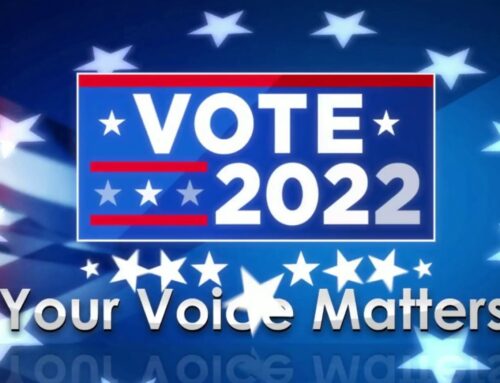

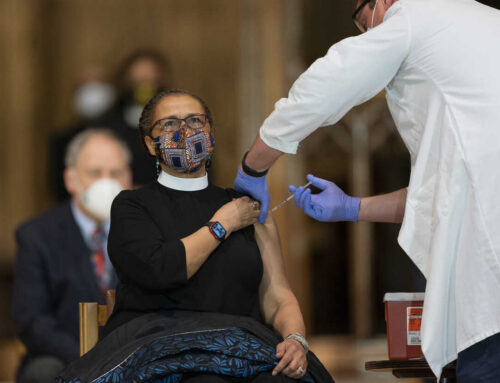










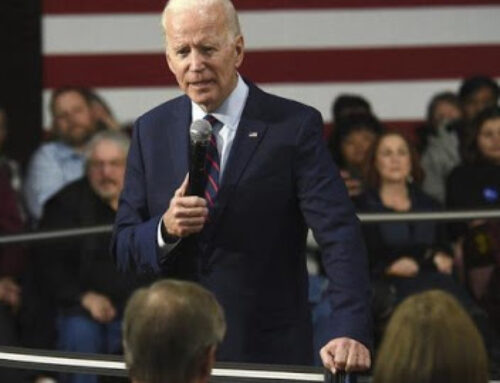










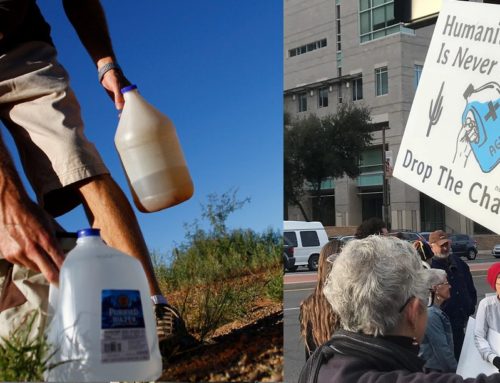





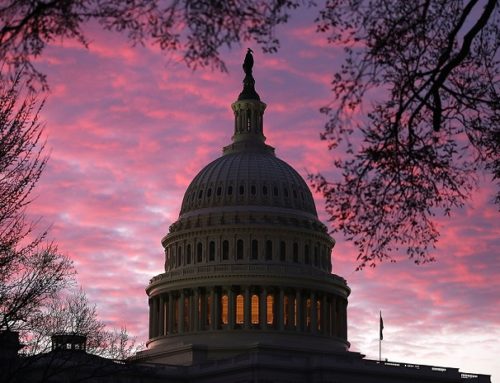






















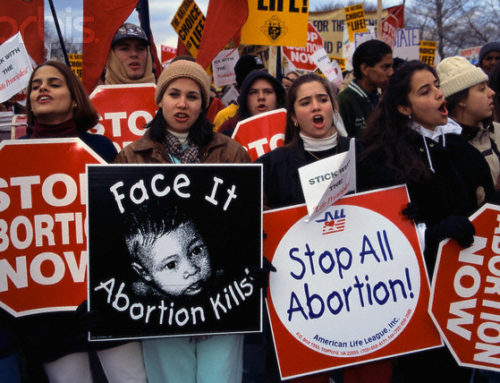





You are a very smart individual!
I was reading some of your blog posts on this website and I conceive this site is really informative! Retain posting.
Wow, just was alert to your blog via Bing, and found that it is really educative. I’m going to be careful for brussels. I’ll be grateful in the event you continue this in future. Lots of people might be benefited out of your post. Thankx
You’re not the regular blog author, man. You definitely have something powerful to add to the World Wide Web. Such a great blog. I will revisit again for more.
Hi, Neat post. There’s an issue with your site in internet explorer, would check this… IE nonetheless is the market leader and a large element of other folks will pass over your great writing because of this problem.
Hey There. I discovered your weblog using msn. This is a really neatly written article. I’ll be sure to bookmark it and return to learn extra of your useful info. Thanks for the post. I will certainly comeback.
I love your writing style really loving this website. “Opinion has a significance proportioned to the sources that sustain it.” by Benjamin Cardozo.
Hiya, I’m really glad I’ve found this information. Today bloggers publish only about gossips and internet and this is actually irritating. A good website with interesting content, that is what I need. Thanks for keeping this site, I’ll be visiting it. Do you do newsletters? Can not find it.
Its good as your other articles : D, appreciate it for putting up. “The rewards for those who persevere far exceed the pain that must precede the victory.” by Ted W. Engstrom.
hello!,I really like your writing very a lot! percentage we keep in touch extra about your post on AOL? I need an expert on this area to solve my problem. Maybe that’s you! Having a look forward to look you.
I really enjoy examining on this internet site, it holds superb posts. “Never fight an inanimate object.” by P. J. O’Rourke.
I am not very excellent with English but I come up this real leisurely to interpret.
Rattling nice pattern and excellent content, hardly anything else we need :D.
Thankx so much for this! I haven’t been this moved by a post for a long period of time! You have got it, whatever that means in blogging. Anyway, You are certainly somebody that has something to say that people should hear. Keep up the outstanding work. Keep on inspiring the people!
Enjoyed studying this, very good stuff, appreciate it.
I just got up from nap and I am already reading your blog. This signifies something! Really useful ideas. Thnkx!
I enjoy the efforts you have put in this, thank you for all the great articles.
Very interesting info!Perfect just what I was looking for!
Appreciate it for helping out, excellent info. “If you would convince a man that he does wrong, do right. Men will believe what they see.” by Henry David Thoreau.
Heya i am for the first time here. I found this board and I to find It truly useful & it helped me out much. I am hoping to provide one thing again and aid others such as you helped me.
I’ve been surfing on-line more than 3 hours nowadays, yet I never discovered any interesting article like yours. It is beautiful worth sufficient for me. In my view, if all website owners and bloggers made good content material as you probably did, the internet will probably be much more useful than ever before. “Nothing will come of nothing.” by William Shakespeare.
Very interesting topic, thanks for putting up.
I was just looking for this info for quite some times. Almost three hours of online searching, at last I found that in your blog. I don’t understand why Alexa do not display this kind of resourceful websites in the first page. Usually the first few sites are full of junks. Perhaps it is time to use another search engine.
I really appreciate this post. I’ve been looking everywhere for this! Thank goodness I found it on Bing. You have made my day! Thank you again!
Only a smiling visitant here to share the love (:, btw outstanding pattern. “Competition is a painful thing, but it produces great results.” by Jerry Flint.
I like this weblog very much, Its a real nice office to read and obtain information.
I just wake up from bed and I’m already reading your articles. This means something! Very useful information. Thnkx!
I like this web site it’s a master piece! Glad I observed this on google.
I liked up to you’ll obtain performed right here. The caricature is attractive, your authored subject matter stylish. nonetheless, you command get bought an edginess over that you want be turning in the following. ill unquestionably come more previously once more since exactly the same nearly very continuously within case you shield this increase.
I view something genuinely interesting about your site so I saved to bookmarks .
I like this site very much, Its a real nice office to read and incur info .
Thanks for the sensible critique. Me and my neighbor were just preparing to do some research about this. We got a grab a book from our local library but I think I learned more from this post. I am very glad to see such magnificent information being shared freely out there.
Some really fantastic posts on this web site, thanks for contribution. “Once, power was considered a masculine attribute. In fact, power has no sex.” by Katharine Graham.
Some really nice and utilitarian information on this web site, as well I believe the style and design has good features.
I truly appreciate this post. I’ve been looking everywhere for this! Thank goodness I found it on Bing. You have made my day! Thanks again!
I like your writing style truly loving this web site. “Man is sometimes extraordinarily, passionately, in love with suffering.” by Feodor Mikhailovich Dostoyevsky.
You have brought up a very superb points , thankyou for the post. “I am not an adventurer by choice but by fate.” by Vincent Van Gogh.
You are my inhalation, I have few blogs and rarely run out from brand :). “Yet do I fear thy nature It is too full o’ the milk of human kindness.” by William Shakespeare.
Good post. Intriguing subject and approach. Ill be returning a long time while in the forseeable future.
You are my breathing in, I have few blogs and often run out from post :). “Actions lie louder than words.” by Carolyn Wells.
Keep up the good piece of work, I read few content on this internet site and I believe that your site is real interesting and has got sets of fantastic info.
I genuinely enjoy looking at on this website , it has got fantastic posts .
I see something truly interesting about your site so I saved to bookmarks .
I visited a lot of website but I conceive this one has got something extra in it. “The feeling remains that God is on the journey, too.” by Saint Teresa of Avila.
Merely wanna input on few general things, The website pattern is perfect, the subject material is very superb : D.
Excellent read, I just passed this onto a colleague who was doing a little research on that. And he just bought me lunch as I found it for him smile So let me rephrase that: Thanks for lunch! “How beautiful maleness is, if it finds its right expression.” by D. H. Lawrence.
I view something truly special in this internet site.
You have noted very interesting points ! ps nice web site . “The appearance of right oft leads us wrong.” by Horace.
Im a massive fan already, man. Youve done a brilliant job being sure that people understand where youre via. And without a doubt, I buy it. huge stuff so i cant wait to consider the rest of your websites. What you have to talk about is significant and being read.
Seems like my seek out informative blogs during this subject has finally come to an end! Even though I am aware that you’ve a life, but I will enjoy visiting this web site updated more frequently.
I really appreciate this post. I have been looking everywhere for this! Thank goodness I found it on Bing. You’ve made my day! Thx again!
I like what you guys are up too. Such clever work and reporting! Keep up the awesome works guys I’ve added you guys to my blogroll.
Websites worth visiting…
[…]here are some links to sites that we link to because we think they are worth visiting[…]……
Recent Blogroll Additions……
[…]usually posts some very interesting stuff like this. If you’re new to this site[…]……
Read was interesting, stay in touch…
[…]please visit the sites we follow, including this one, as it represents our picks from the web[…]…
Gems form the internet…
[…]very few websites that happen to be detailed below, from our point of view are undoubtedly well worth checking out[…]…
Auto Warranty Reviews…
[…]web sites worth visiting[…]…
Web Developement and Web Marketing…
[…]while the places we link to underneath are completely unrelated to ours, we think they are worth a read, so have a peek[…]…
Check this out…
[…] that is the end of this article. Here you’ll find some sites that we think you’ll appreciate, just click the links over[…]…
Sites we Like……
[…] Every once in a while we choose blogs that we read. Listed below are the latest sites that we choose […]……
Bored at work…
I like to look in various places on the web, often I will go to Stumble Upon and follow thru…
Superb website…
[…]always a big fan of linking to bloggers that I love but don’t get a lot of link love from[…]……
Great website…
[…]we like to honor many other internet sites on the web, even if they aren’t linked to us, by linking to them. Under are some webpages worth checking out[…]……
Blogs ou should be reading…
[…]Here is a Great Blog You Might Find Interesting that we Encourage You[…]……
Awesome website…
[…]the time to read or visit the content or sites we have linked to below the[…]……
Recent Blogroll Additions……
[…]usually posts some very interesting stuff like this. If you’re new to this site[…]……
Tumblr article…
I saw a writer talking about this on Tumblr and it linked to…
You should check this out…
[…] Wonderful story, reckoned we could combine a few unrelated data, nevertheless really worth taking a look, whoa did one learn about Mid East has got more problerms as well […]……
Websites worth visiting…
[…]here are some links to sites that we link to because we think they are worth visiting[…]……
Online Article……
[…]The information mentioned in the article are some of the best available […]……
Trackback…
[…]Sites of interest we have a link to[…]……
Sources…
[…]check below, are some totally unrelated websites to ours, however, they are most trustworthy sources that we use[…]……
You should check this out…
[…] Wonderful story, reckoned we could combine a few unrelated data, nevertheless really worth taking a look, whoa did one learn about Mid East has got more problerms as well […]……
Superb website…
[…]always a big fan of linking to bloggers that I love but don’t get a lot of link love from[…]……
Awesome website…
[…]the time to read or visit the content or sites we have linked to below the[…]……
You should check this out…
[…] Wonderful story, reckoned we could combine a few unrelated data, nevertheless really worth taking a look, whoa did one learn about Mid East has got more problerms as well […]……
Looking around…
While I was surfing yesterday I saw a excellent post about…
Blogs ou should be reading…
[…]Here is a Great Blog You Might Find Interesting that we Encourage You[…]……
Recommeneded websites…
[…]Here are some of the sites we recommend for our visitors[…]……
Links…
[…]Sites of interest we have a link to[…]……
Superb website…
[…]always a big fan of linking to bloggers that I love but don’t get a lot of link love from[…]……
Informative and precise…
Its difficult to find informative and precise info but here I noted…
Gems form the internet…
[…]very few websites that happen to be detailed below, from our point of view are undoubtedly well worth checking out[…]……
Read was interesting, stay in touch……
[…]please visit the sites we follow, including this one, as it represents our picks from the web[…]……
Websites we think you should visit…
[…]although websites we backlink to below are considerably not related to ours, we feel they are actually worth a go through, so have a look[…]……
Awesome website…
[…]the time to read or visit the content or sites we have linked to below the[…]……
Links Trackback…
[…]Sites of interest we have a link to[…]……
Tumblr article…
I saw a writer talking about this on Tumblr and it linked to…
Ping Back…
It’s really a cool and useful piece of information. I’m satisfied that you simply shared this useful info with us. Please stay us up to date like this. Thanks for sharing….
Ping Back…
You could certainly see your skills within the paintings you write. The sector hopes for even more passionate writers such as you who are not afraid to mention how they believe. Always go after your heart….
Websites you should visit…
[…]below you’ll find the link to some sites that we think you should visit[…]……
Trackback…
[…]Sites of interest we have a link to[…]……
Visitor recommendations…
[…]one of our visitors recently recommended the following website[…]……
Visitor recommendations…
[…]one of our visitors recently recommended the following website[…]……
Websites you should visit…
[…]below you’ll find the link to some sites that we think you should visit[…]……
Websites worth visiting…
[…]here are some links to sites that we link to because we think they are worth visiting[…]……
Online Article……
[…]The information mentioned in the article are some of the best available […]……
Sources…
[…]check below, are some totally unrelated websites to ours, however, they are most trustworthy sources that we use[…]……
Read was interesting, stay in touch……
[…]please visit the sites we follow, including this one, as it represents our picks from the web[…]……
Ping Back…
My brother suggested I might like this blog. He used to be entirely right. This post truly made my day. You cann’t believe simply how so much time I had spent for this info! Thanks!…
Superb website…
[…]always a big fan of linking to bloggers that I love but don’t get a lot of link love from[…]……